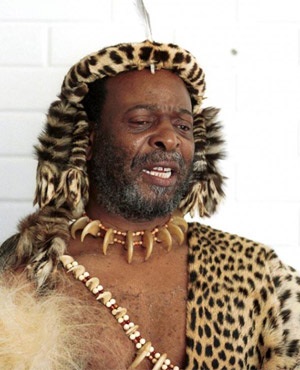
As King Goodwill Zwelithini puts the finishing touches on a massive land claim, he wants to use a mining boom to support his ambitions for a 21st century Zulu empire
A mining boom is about to hit Zululand and some of the 2.8 million hectares of rural KwaZulu-Natal under tribal control. Mining companies are lining up to access billions of rands in coal, anthracite, titanium and other metals buried beneath the province’s hills.
King Goodwill Zwelithini this week gathered together the key players in the small-scale rural mining sector in Richards Bay for a two-day session aimed at turning mining into a big hope for rural job creation.
Zwelithini wants to place the province’s amakhosi at the centre of the process – to ensure the residents they represent get the 26% of the profits mining companies are legally obliged to tithe in community development initiatives. He also wants the chiefs to be trained in how the industry works, and in the legal framework for exploration and extraction.
Chiefs and their tribal councils listened enthralled as the king, reading from a prepared speech on his iPad, outlined his vision. His plan, he said, was to change mining from an industry that benefited locals “by accident, if at all” and paid “slave wages” into “a major creator of jobs in rural areas”.
Dressed in a blue business suit and flanked by officials from the Ingonyama Trust Board – which administers tribal land ceded to the monarch in terms of a 1993 agreement – Zwelithini said the rural economy needed to move away from “the tilling of the soil” towards mining.
The amakhosi, he said, “should be the drivers of mining in rural development”, and work with mining houses and residents to create jobs.
The amakhosi, some of whom hailed from areas like Mtubatuba, Fairbreeze, Ulundi and Richards Bay – where mining is already under way – made up most of the audience, along with their traditional councils. Eight mining companies, with interests ranging from titanium to gravel, were there too.
But there were also a small number of representatives from communities already affected by mining, and they were far less enthusiastic than their traditional leaders.
On the second day of the conference, at a session not attended by the king, they presented a litany of complaints ranging from amakhosi signing unlawful access agreements with mining houses, to family graveyards being bulldozed to make way for mines or their access roads.
They called on Zwelithini to ensure the amakhosi consulted communities and to make certain they benefited from the mines.
Gladman Mdladla, who, with other residents of Mtubatuba, has opposed the building of the Tendele mine at Somkhele, said he and his neighbours had lost livestock and had been forcibly removed to make way for mining.
“Don’t we, as the poor, have rights as well and have somewhere to take our complaints to? We have lost our cattle and our farms. We have lost all. When we complained to the inkosi about this, they fought with us,” he said.
Nongoma resident Amos Mjadu said his local traditional leader had not attended to their complaints about losing livestock during mining operations.
Bheki Mkhwanazi from Makhasaneni in Melmoth said “we are being abused”.
“We see ourselves as not important. They are digging up our fathers’ graves for mines. It is so painful. When it is raining, we can see their bones with our eyes,” he said.
Sifiso Dladla, spokesperson for Mining Affected Communities United in Action, welcomed the king’s intervention. But he said a forum needed to be created at which communities could have a voice equal to that of traditional leaders and mining companies.
“The process is very welcome. We believe there needs to be a provincial mining structure, involving everyone affected by mining, at which no one voice is more powerful. We need to work towards a provincial mining charter to protect communities and ensure that the law is adhered to,” he said.
Ingonyama Trust Board chairperson Jerome Ngwenya said communities who had lost land and whose property had been damaged would be compensated. “Those who did not get paid for damages will be paid. The law protects us all equally, but pointing fingers at the amakhosi will not help,” he said




 Publications
Publications
 Partners
Partners








